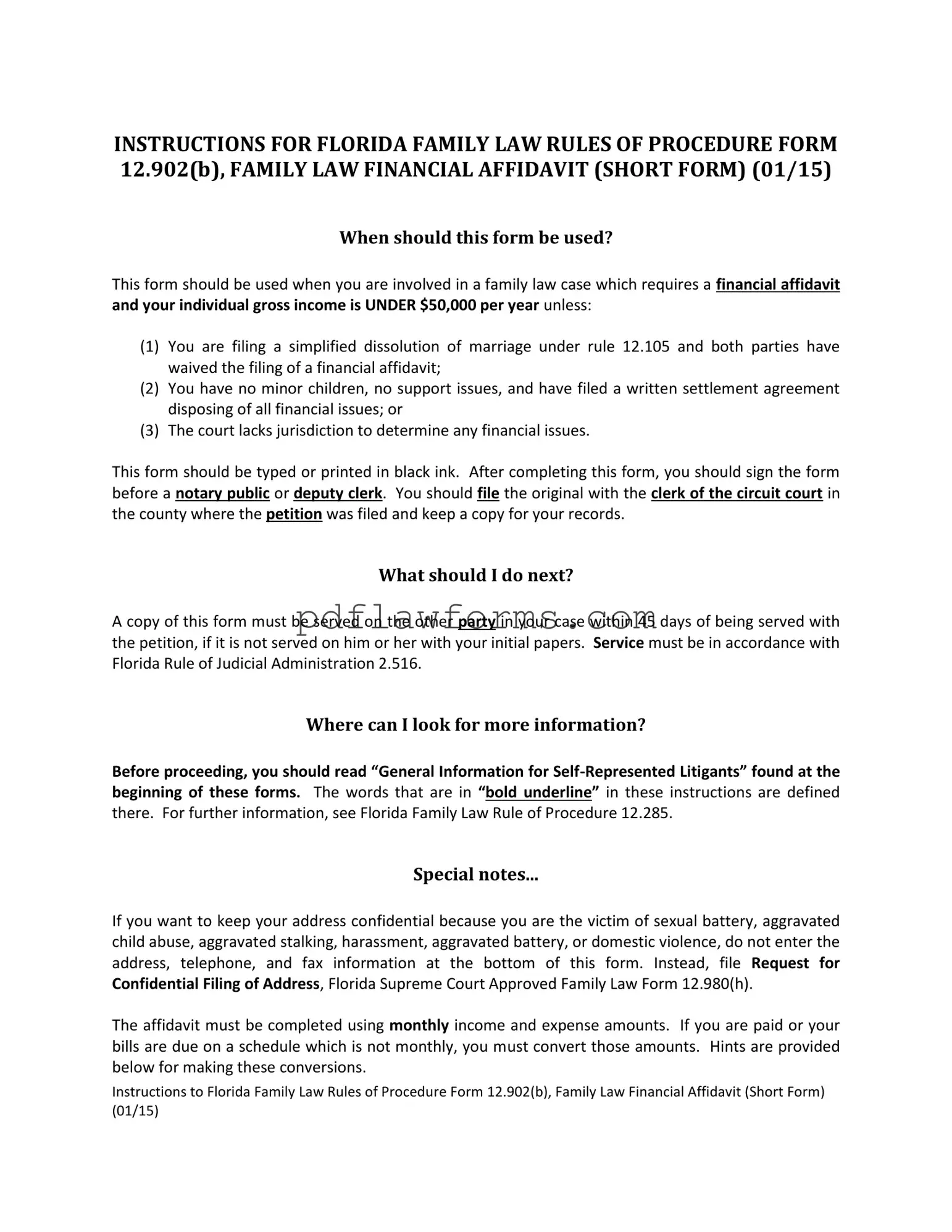Filling out the Florida Financial Affidavit Short 12.902(b) form can be a daunting task, especially for those unfamiliar with the process. One common mistake is neglecting to provide complete information. Every section of the form is crucial, and leaving out details can lead to delays or even rejection of the affidavit. Ensure that all requested financial data, such as income, expenses, and assets, are thoroughly documented.
Another frequent error is miscalculating income or expenses. It's essential to double-check figures before submitting the form. A simple arithmetic mistake can misrepresent your financial situation, potentially affecting court decisions. Use a calculator or spreadsheet to verify totals, ensuring accuracy.
Some individuals fail to update their financial information before filing. Financial circumstances can change rapidly, and submitting outdated information may not reflect your current situation. Always review and revise your affidavit to include the most recent financial data.
In addition, many people overlook the importance of providing supporting documentation. The court often requires proof of income, such as pay stubs or tax returns. Without these documents, the affidavit may be considered incomplete. Gather all necessary paperwork before starting the form to streamline the process.
Another mistake is not signing the affidavit. It may seem obvious, but many forget to sign and date the form before submission. An unsigned affidavit is not valid and will be rejected, causing unnecessary delays in your case.
Some filers also fail to consider the implications of their financial disclosures. Being honest and transparent is crucial. Misrepresentation, whether intentional or not, can lead to serious legal consequences. Always provide accurate information to avoid complications down the line.
Additionally, individuals sometimes ignore the instructions provided with the form. Each section has specific guidelines that must be followed. Taking the time to read these instructions can help prevent errors and ensure that the affidavit is filled out correctly.
Another common oversight is neglecting to keep copies of the submitted affidavit. Having a personal copy for your records can be invaluable if questions arise later. Always make duplicates of important documents for your files.
People often forget to review their completed affidavit before submission. A final review can catch errors or omissions that may have been overlooked during the initial filling out. Taking a moment to read through the entire form can save you from potential issues.
Lastly, some individuals fail to seek assistance when needed. If you find the form confusing or overwhelming, consider consulting a legal professional. They can provide guidance and ensure that your affidavit is filled out correctly, helping you avoid common pitfalls.

